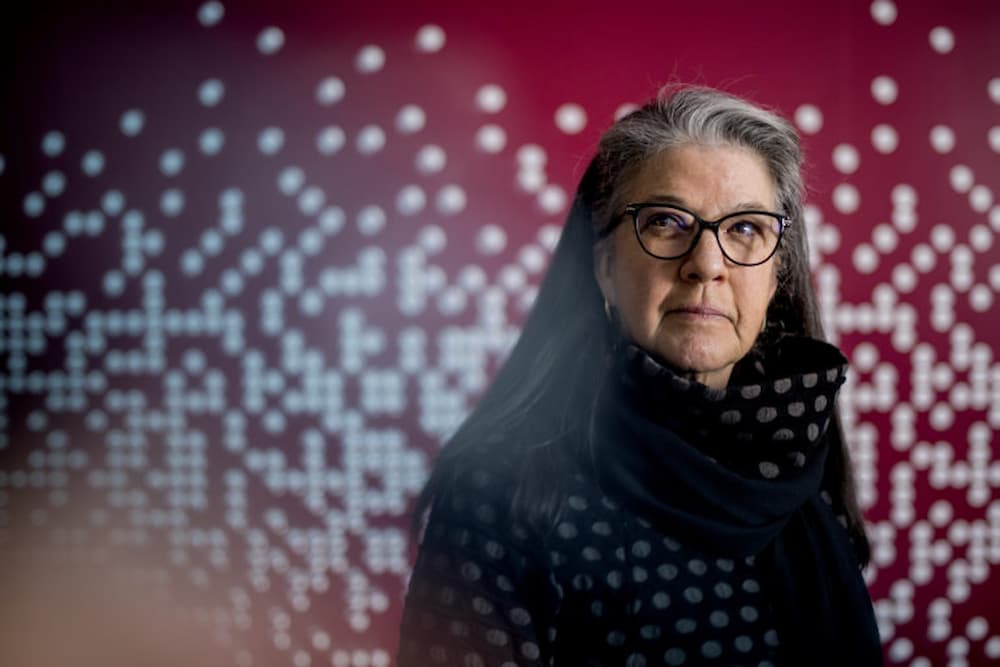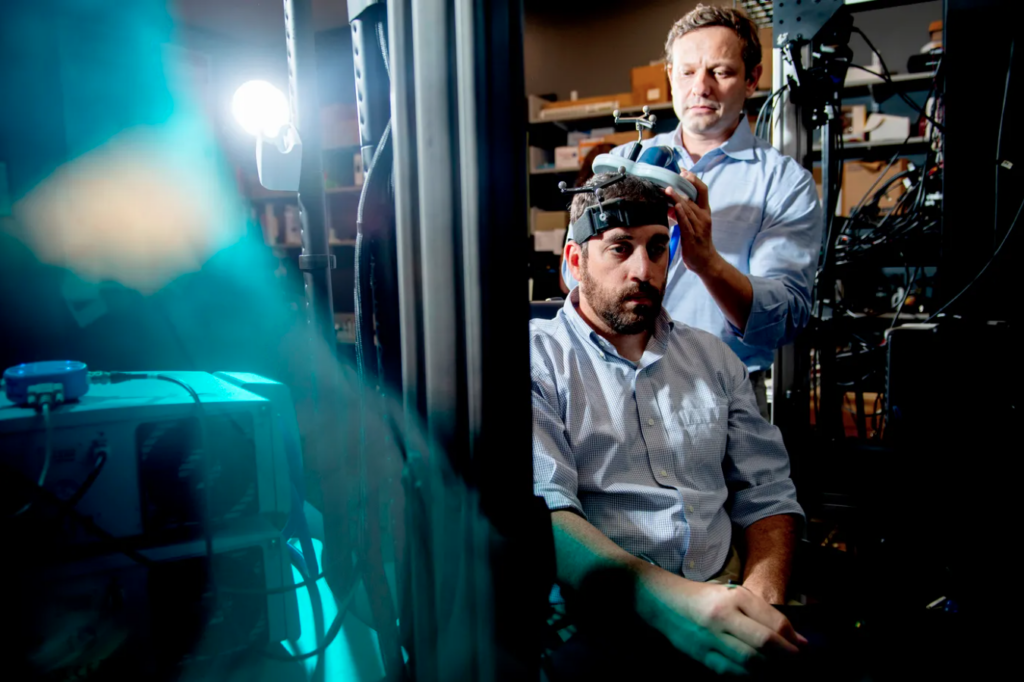From her seat on the South Lawn of the White House, Jean McGuire watched President Joe Biden sign into law the Respect for Marriage Act, which provides federal protections for same-sex and interracial marriages. She was surprised by her emotions.
“It was harder than I expected it to be,” says McGuire, a Northeastern professor of the practice in health sciences with more than 30 years of senior experience in public health. Much of her career has been devoted to her work in Washington, D.C., as a health-care lobbyist, a director of national policy organizations and coalitions in HIV/AIDS and disability, and a leader on LGBT-related policies.
She returned to Washington to attend the Dec. 13 ceremony in the absence of her wife of 18 years, Dr. Barbara Herbert, a physician activist who died in April from respiratory arrest and chronic asthma. They had been the 10th same-sex couple in the U.S. to be married when such unions were legalized in Massachusetts in 2004.
As she took in the speeches, McGuire could not help but relive her role in the mission for equality. Neither she nor Herbert had longed to be married after the dissolutions of their “traditional” marriages.
It was after reading a brief filed by a lawyer on behalf of the Massachusetts Department of Public Health, where McGuire was assistant commissioner, that she and Herbert recognized the need to define and defend their right to be married.
“It was really horrifying when I understood what was going on in our brief—to see the repetition of ‘scientific evidence’ of how lesbians raised promiscuous kids and how harmed children are in the context of that,” says McGuire, who insisted that the brief be amended to remove the inaccurate information. “The author of the brief was one of our general counsels who had come to me not a year before because her teenage daughter had come out to her as gay and she didn’t know how to handle it.
“We were moved to embrace marriage when we realized that people, like this general counsel, could publicly assert that ‘some of their best friends were gay’ and privately—and not so privately—participate in our denigration and discrimination,” McGuire says.
So much depended on their right to be married.
“I had already gone through having my mother threaten to take my two kids,” adds McGuire, who with Herbert raised her two biological children and Herbert’s adoptive child. “And I knew people who had lost their kids that way.”
McGuire recalled how Biden as a U.S. senator in 1996 had voted for legislation that restricted marriage to a man and a woman. Now she was watching him sign a law that flipped his earlier opinion.
“The road to this moment has been long,” acknowledged Biden. “But those who believe in equality and justice—you never gave up.”
McGuire would tell friends of Biden reflecting on his “coming out” as a supporter of marriage equality, of Senate leader Chuck Schumer celebrating his lesbian daughter’s marriage and his soon-to-be-born grandchild, or House leader Nancy Pelosi crediting grassroots mobilization and pushing for more of it.
“To see it spoken of in such an affirming way,” McGuire says. “Barb would have loved to have heard that.”
McGuire’s time at Northeastern has deepened her perspective.
“It’s very frustrating to our students,” McGuire says. “They don’t understand why something that makes sense just can’t be made right, or why it has to be such a long haul.”
She found herself thinking about how the right to marriage and other LGBTQ causes were being framed on the White House lawn as issues of civil rights that were now arm-and-arm with the missions of equality and respect for race, religion, disability and other areas.
“You’re struck, first, that the work still goes on,” says McGuire. “And, second, that the next generation doesn’t understand what the struggle was. And that’s true in race. It’s true in disability. It’s true in feminism. And it’s hard to impart that sense of struggle when people maybe don’t see the risks that continue, or appreciate what their elders did.”
The details of her late-night wedding in Cambridge, Massachusetts, came flooding back.
“All day, people had gathered outside, like a big picnic,” McGuire recalls. “And then at midnight they opened the doors, we went in and there was a little ceremony. And then they started the processing of the licenses. Each step was nice, and it was actually simple but gratifying, and we were couple No. 10.
“And, second, that the next generation doesn’t understand what the struggle was. And that’s true in race. It’s true in disability. It’s true in feminism. And it’s hard to impart that sense of struggle when people maybe don’t see the risks that continue, or appreciate what their elders did.”
“When we came out around 1:30 in the morning, there were 4,000 people out there,” McGuire says. “And we had no idea. You’re walking down the City Hall steps and it was like the whole world was there and it was really quite amazing. I can still see those klieg lights.”
Amid the celebration and applause McGuire was reminded, as she always is, by the loss of her beloved after 32 years together. She smiles at the memory even as she blinks away her tears.
“I guess it’s the idea of joy,” she says of her afternoon at the White House. “It was very joyful that day. And I’ve learned to be grateful for the joy of my life.”
This post was originally published on News @ Northeastern by Ian Thomsen.




